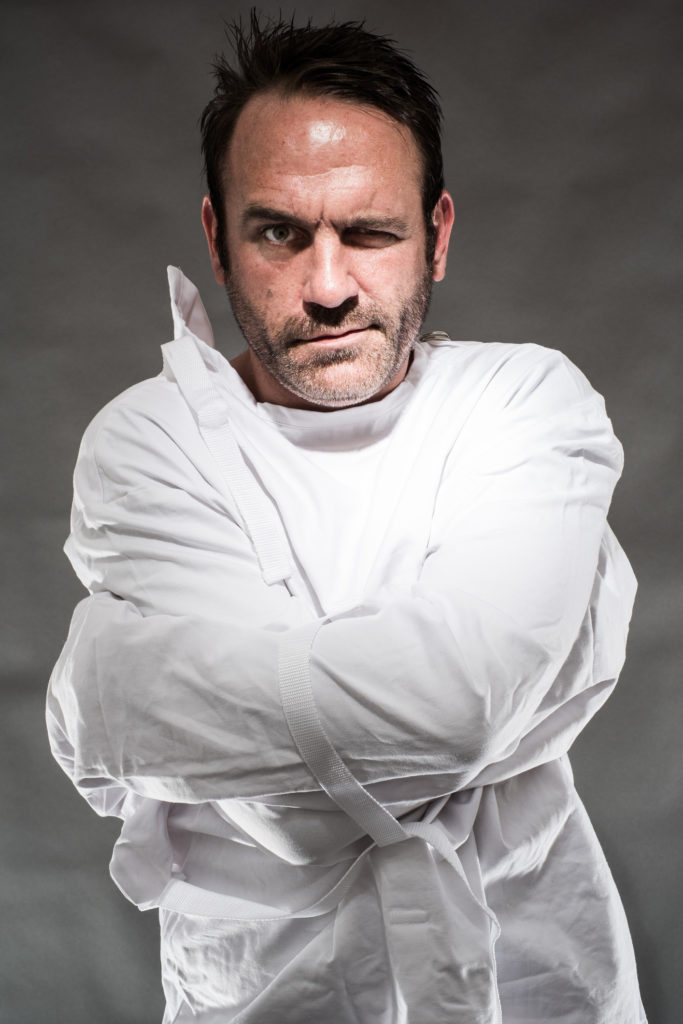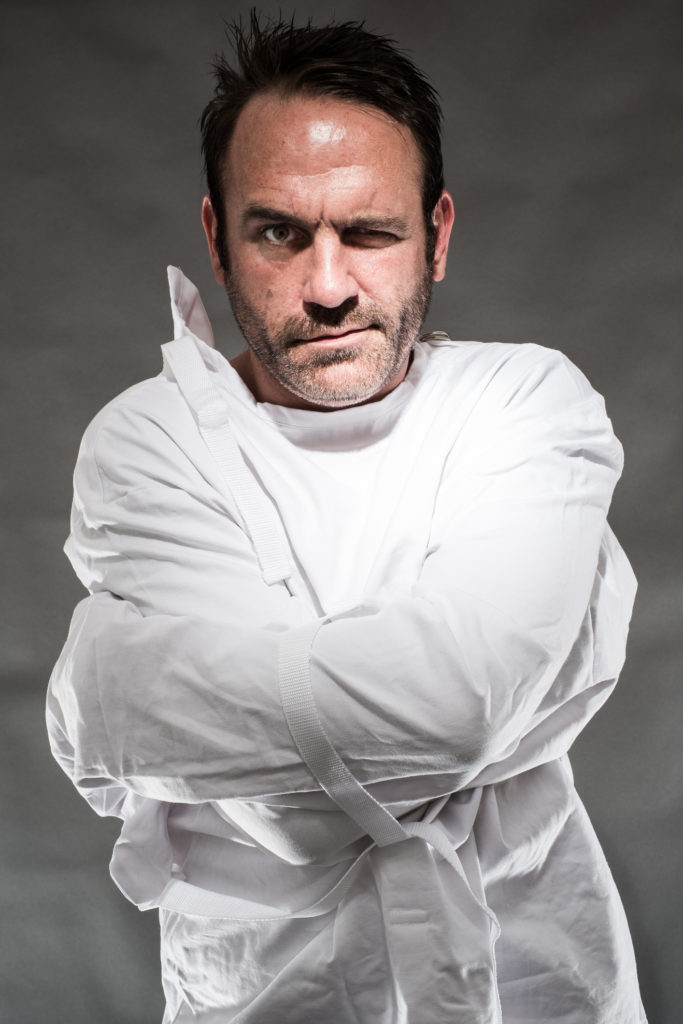
If you’re like me, you absolutely hate being confined. And confinement is even more irritating if you deem it unfair, unjust, or unnecessary. It’s like being falsely arrested or put in a straitjacket against your will. No wonder many of us have been at our wits end during the recent COVID-19 quarantine.
Dictionaries define confinement as being limited, restricted, or enclosed within bounds. It also can mean being shut in a particular location because of imprisonment, illness, or discipline.
It’s hard to imagine anyone volunteering for confinement unless they’re terrified of the outside world. Particularly in America, we love our freedom. We assert our rights. We don’t want the government or anyone else to tell us what to do.
I admit, I feel the same way. If I had lived in the 1700s, I very well may have participated in the Boston Tea Party. And I’m troubled today that so many Americans are willing to surrender their God-given, Constitutional rights without even given it a second thought.
Don’t we value the liberty so many of our forefathers fought and died for? If we’re so complacent that we no longer value things like freedom of speech, press, assembly, and religion, how long will it be before those rights are taken from us?
However, there’s another side of this coin. In God’s kingdom, we surrender our earthly “rights” to King Jesus. Yes, we’re told to stand fast in our liberty (Galatians 5:1). But that principle is in reference to our spiritual freedom, not so much the matter of asserting our rights as Americans.
Whenever we assert our “Constitutional rights,” we must be careful to ensure that our hearts are in alignment with God’s Word – the constitution of heaven. Otherwise, we’ll find ourselves in the pitiful condition of Israel when “everyone did what was right in their own eyes” (Judges 21:25). That’s not liberty, but just another form of bondage.
Breaking Off Our Chains
The apostle Paul wrote four of his letters and some of his most profound teachings while confined to jail. If not for Paul’s incarceration, the New Testament may have missed some ingredients we greatly treasure today.
One of Paul’s prison epistles was his letter to the Philippians. This is a bit ironic, because Acts 16 tells the story of how God used Paul and Silas to plant the church in Philippi. Guess what happened? Their ministry in Philippi ended up landing them in prison! Perhaps you remember the account of how Paul and Silas were in jail worshiping the Lord “at about midnight,” and God sent a powerful earthquake to break their chains (Acts 16:16-40).
Let me be honest: If I was unjustly beaten and confined to prison, I might have a hard time enthusiastically praising the Lord. But this great story illustrates that worship is a powerful key in delivering us from our prisons.
As you read this blog, it’s unlikely that you’re in a literal prison. However, perhaps you’ve found yourself confined in some other way. Addiction, fear, depression, anger, lust, or some other bondage may be holding you in chains. Like so many others today, you also might be feeling confined by health struggles or financial lack. And sadly, I meet lots of people who feel stuck in an unhappy marriage or frustrating job.
But even if your confinement has lasted a long time and this seems like the “midnight” hour, the story of Paul and Silas shows that there’s still time for a breakthrough. Notice, however, that the breakthrough didn’t come through complaining but through praising.
Perhaps Paul and Silas were rejoicing because they understood that their CONFINEMENT was just part of God’s REFINEMENT. Maybe they even recalled Job’s revelation that God was using his trials to produce pure gold (Job 23:10).
The Lessons of Paul’s Confinement
Scholars say Paul wrote to the Philippians while under house arrest in Rome – confined once again. But instead of the letter to being full of complaining, it’s quite the opposite. If I was unfairly confined like that, my epistle might have moaned about injustice or complained about the lousy food or lumpy bed. But, shockingly, Paul’s themes in Philippians are JOY and CONTENTMENT!
“Rejoice in the Lord always,” Paul wrote. And seemingly concerned that his readers might have missed his point the first time, the apostle repeated himself, “Again I will say, rejoice!“ (Philippians 4:4).
Paul didn’t want anyone to feel sorry for him during his various periods of confinement. It’s beautiful that instead of seeing himself as a victim of the religious establishment or the Romans, he described himself as a “prisoner of the Lord” (Ephesians 4:1). He knew that God was sovereign over his circumstances, and that perspective made all the difference.
In the midst of his imprisonment and other trials, Paul was able to discover a great secret: “I have learned in whatever situation I am to be content” (Philippians 4:11-12 ESV). Wouldn’t it be great if we could experience that supernatural peace as well? Too often, our contentment is based on our fluctuating circumstances. Not so for Paul.
Earlier in the same chapter, he divulged an important part of this secret to contentment:
Finally, brethren, whatever things are true, whatever things are noble, whatever things are just, whatever things are pure, whatever things are lovely, whatever things are of good report, if there is any virtue and if there is anything praiseworthy – meditate on these things (Philippians 4:8).
Even if we can’t change our circumstances, we have an opportunity to change our attitude. Even during our confinement, we can discipline our mind to focus on our blessings rather than our hardships.
It’s clear that Paul learned another great lesson during his time in captivity: His prayer life went to a whole new level. Unable to provide counsel and encouragement to the Philippians or other churches in person, he realized more than ever the importance of praying for them. Today, of course, we have cell phones and the ability to see our friends and family on FaceTime or Zoom, but I believe the pandemic has nevertheless provided us with a vital season to deepen our prayer lives.
We see this in Philippians 1:3-6. First, Paul assures the church of his ongoing love and constant prayers. Then he adds one of my favorite verses in the entire Bible:
And I am sure of this, that he who began a good work in you will bring it to completion at the day of Jesus Christ (v. 6 ESV).
How could the apostle be so certain God would finish the work He’d begun in these new believers? Because Paul knew he had been praying for them!
During this strange time of quarantining because of the coronavirus, I hope you have learned this same wonderful truth: You can impact people with your prayers, even if you are unable to be with them face to face.
In another letter, Paul wrote that although he had been wrongfully “chained like a criminal…the word of God cannot be chained” (2 Timothy 2:8-9 NLT). In the same way, the Lord wants to unleash His Word in powerful ways today, even while some of our usual activities are restrained.
Paul Wasn’t the Only One
It’s intriguing that Paul’s confinement wasn’t unique among the apostles. Peter was confined a number of occasions in the book of Acts, and Jesus told him to expect confinement right up until his death:
“I tell you the truth, when you were young, you were able to do as you liked; you dressed yourself and went wherever you wanted to go. But when you are old, you will stretch out your hands, and others will dress you and take you where you don’t want to go.” Jesus said this to let him know by what kind of death he would glorify God. Then Jesus told him, “Follow me” (John 21:18-19 NLT).
According to church history, Peter was put to death at the hands of the Roman Emperor Nero. Feeling unworthy to be put to death in exactly the same manner as his Lord, he requested that he be hung upside down during his crucifixion.
History says that John was the only disciple to die by natural causes. But he faced persecution as well, exiled on the Island of Patmos toward the end of his life.
John’s time on Patmos wasn’t wasted, for Jesus appeared to him there and gave him the book of Revelation. Once again, confinement turned out to be a blessing. I can’t help wondering if John would have been able to receive such a clear message if he had continued going about the busyness of regular church life.
My friend, you may not have chosen your seasons of confinement, but I hope you won’t let them go to waste. Even in times of trial, allow God to fill you with supernatural joy that isn’t based on your circumstances. Let Him teach you a whole new level of contentment. And use your time of confinement to draw closer to the Lord and pray powerful prayers – maybe even writing a few epistles along the way.



Good message, Jim. And very interesting timing. I have been putting together a four part series from Philippians entitled, “Joy Maintenance” that I plan to start on the 31st , when we move back inside for our services.
Jim, this is one if my favorite blogs you have written!
This season of confinement wasn’t truly appreciated until we traveled from home and returned in a few days. Our time at home has been one if the best seasons in our life. Thank you Jesus.